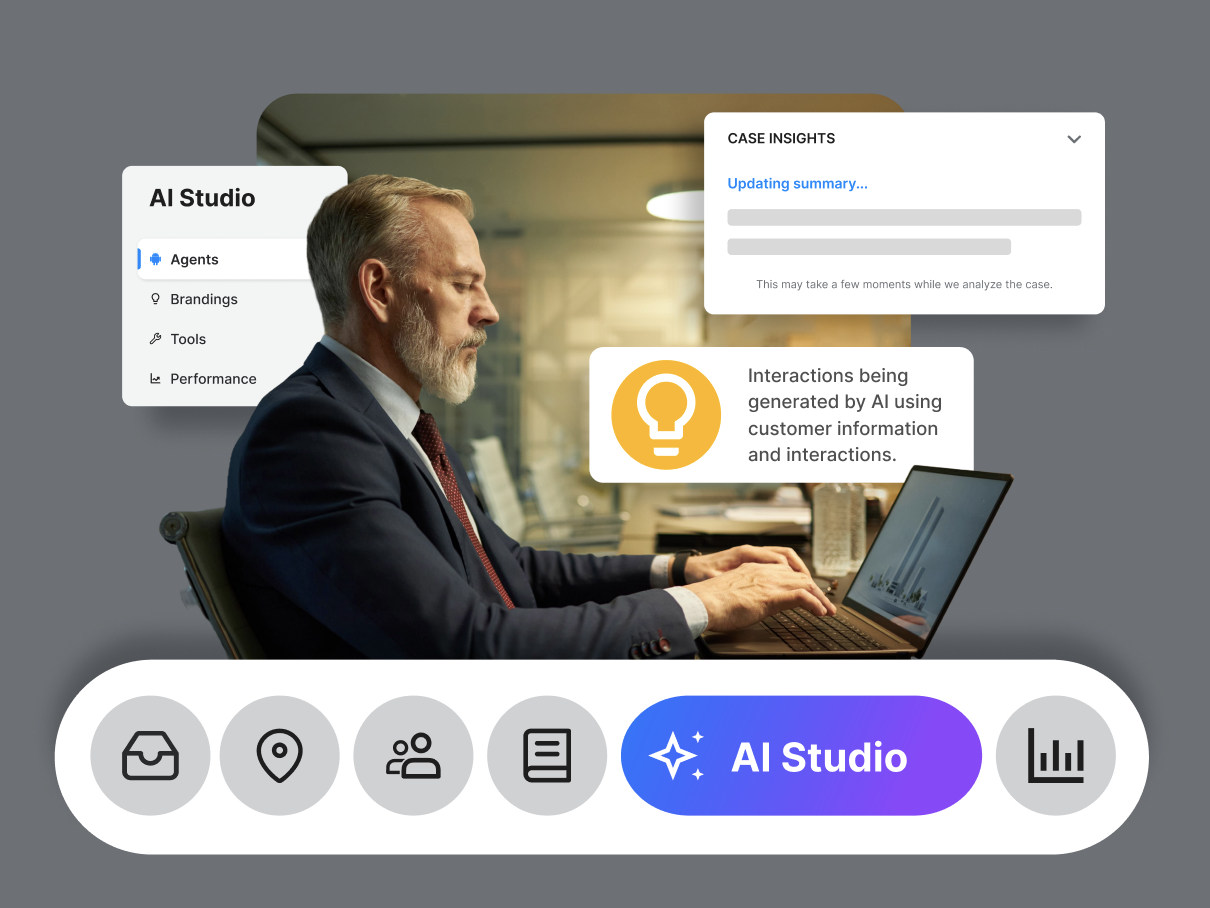Product support goes above and beyond the basic needs of customer service. Rather than simply answering questions and resolving issues as they come up, the new model of product support is designed to monitor and manage technologies that integrate and operate as an ecosystem.
But product support isn’t just about supporting tech products in the field. It’s also about driving adoption, activation, revenue, and retention – four critical components of the B2B technology lifecycle.
Advanced product support allows for a truly seamless customer experience.
Product Support is a Competitive Advantage
The B2B technology landscape is more interconnected than ever. Each component relies heavily on other devices and vendors to operate effectively. Product support allows technology providers to thrive within the business ecosystem and keep up with evolving customer expectations.
Particularly in the new era of recurring revenue for merchant technology firms, investing in product support provides healthy returns for companies across virtually every segment.
Plus, it can set you apart from the ever-growing competition. By adding value to every customer interaction, product support technology elevates customer experience, empowers your team to perform their best, and raises your bottom line.

With the convenience of omnichannel support (including AI-powered chatbots), the reliability of 24/7 technology monitoring, and the power of custom-built knowledge base, the impact of product support is undeniable.
But, as with any investment, it’s easier to justify if you have specific metrics and processes in place to measure the results. So, let’s discuss the tangible benefits of product support for B2B businesses, along with which metrics you can use to reveal the extent of your ROI.
9 Ways Product Support Generates Meaningful ROI
1. Better CX = Higher NPS
Impact of product support: Improved customer experiences.
Most relevant metric to measure: Net Promoter Score (NPS).
Investing in product support allows B2B companies to create better support experiences for customers at every stage of the product lifecycle. From activation and onboarding to maintenance and upgrades, product support streamlines and improves the customer experience.
One of the best ways to measure how your customers feel about your service and support is net promoter score (NPS). That is, how likely are they to recommend your business to someone else. According to research by Temkin Group, not only are B2B customers more likely to refer vendors with a high NPS to other potential clients, but they’re also more willing to spend more on their services, try out new products, and forgive the occasional mistake.
2. Greater Customer Loyalty = Lower Rate of Churn
Impact of product support: Increased customer loyalty.
Most relevant metric to measure: Churn rate.
Is one bad experience enough to turn otherwise loyal customers off of your business?
In some cases, yes.
Research shows that 51% of B2B clients will stop doing business with your company for at least two years following a single negative experience.
That’s why providing reliable, high-quality product support is essential to customer loyalty and reducing client churn – especially when it comes to retaining your most valuable clients. The biggest clients on your roster likely have access to the most resources, which means they might be quick to shop around for other options if your product support fails to meet their expectations.
Not to mention effective product support also enables customers to make informed buying decisions, which increases satisfaction and long-term retention.
3. Valuable Customer Relationships = Higher CLV
Impact of product support: More opportunities for cross-selling; higher-value customer relationships.
Most relevant metric to measure: Customer lifetime value (CLV).

Keeping your customers happy with reliable product support can pay you back in dividends for years to come. How much can you earn back on your investment? On average, loyal customers are worth up to ten times the value of their initial purchase.
This value can come back to you in the form of loyalty and future purchases, willingness to invest in more of your services, to try new products when they become available, and referrals. According to American Express, one satisfied customer will tell nine other people about their positive experience.
4. Proactive Support = Fewer Service Interruptions
Impact of product support: Resolve potential issues quickly and proactively before clients even notice.
Most relevant metrics to measure: Incoming tickets and downtime.
Your customers are busy running their own businesses. They shouldn’t have to deal with unexpected downtime or take time out of their day to report support issues. Fortunately, thanks to AI-powered proactive support solutions, they don’t.
Thanks to intelligent technology and device monitoring, your product support team can ensure everything is always operating at 100%. Proactively detect, diagnose, and resolve potential issues – so you can stay ahead of support problems and your customers can continue business as usual.
5. Self-Service Options = Fewer Support Requests
Impact of product support: Deflect incoming tickets with self-service solutions.
Most relevant metrics to measure: Incoming tickets and self-service resources traffic.
In addition to resolving issues proactively, another way to reduce support costs is to offer self-service options to your customers. Not only does this save on training and hiring costs, but it also reduces agent costs long-term by scaling the level of support provided without necessarily scaling the size of your team.
Self-service solutions like a customer-facing knowledge base, FAQ, and chatbots give your customers more options and reduce incoming support tickets. Your support team can spend less time handling simple, repetitive requests and focus on resolving urgent issues more quickly.
The simplest way to track effectiveness of your self-service support is to track incoming support requests over time compared to the number of times customers access your self-service resources.
6. Deep Product Knowledge = Increased First Contact Resolution
Impact of product support: Every agent has instant access to relevant, accurate product and customer information.
Most relevant metrics to measure it: First contact resolution rate; cost per resolution.
When your team has access to a custom-built, AI-driven knowledge base, they can resolve complex support issues in more quickly. Building a detailed knowledge base also means onboarding new agents more quickly because they won’t require as rigorous of a training program if they have access to specialized knowledge about the product and the customer account at their fingertips.
More knowledgeable agents are more likely to resolve issues at first point of contact – which allows your team to work efficiently and keeps your customers happy. The fewer call-backs and repeat issues your team needs to handle, the lower your cost per resolution. Plus, reducing time spent waiting on hold or transferring between support agents creates a much easier, pleasant experience for your clients.
7. AI-Powered Knowledge Base = Shorter Handle Time
Impact of product support: Support agents are equipped to handle anything.
Most relevant metrics to measure: Average handle time; time to resolution.
An intelligent knowledge base streamlines knowledge access for your agents and merchants alike. Not only does this save your agents time by serving up the right information at the right time, it also provides suggested responses to ensure your customers are getting the most accurate and efficient support possible.
Research by Temkin Group found that, “among B2B decision makers, lack of speed in interactions with their suppliers is the number one pain point, mentioned twice as often as price.” By making it easier for customers to help themselves and enabling your support team to deliver a consistent level of product support, you can maximize agent productivity and minimize resolution time for your customers.
8. Increased Efficiency = Lower Support Costs
Impact of product support: Scale your support, not your costs.
Most relevant metrics to measure: Customer to agent ratio.
Self-service product support channels, like a customer-facing knowledge base or help center, allow you to scale your support offerings without necessarily expanding your workforce. This gives your customers the power and autonomy to find their own answers to common support questions.
Not only is this type of product support convenient for your customers because it can be accessed from anywhere, at any time, but it also ensures your support agents can use their time more efficiently. In practice, this also allows you to optimize your agent to customer ratio – which translates into lower support costs, even as you scale your support offerings. By leveraging self-service support, device monitoring, and proactive support, your agents are free to focus their energy on complex support issues.
9. Shorter Time to Activation = Higher Revenue
Impact of product support: Customers experience faster activation time.
Most relevant metrics to measure: Length of activation period for new products and services.
Expanding your product support technology and processes makes it easier to onboard new clients and speed up product activations. When your customers experience faster activation time, it opens up the potential for more revenue and higher NPS scores – which leads to greater retention, recurring revenue, and increased customer lifetime value.
Investing in Product Support is Investing in Your Future
Product support technology allows you to maintain stronger and more valuable relationships with your customers. Providing reliable product support builds trust, provides consistency, helps your customers run their business smoothly, and makes them more likely to remain loyal throughout the lifecycle of the product and beyond.
.svg)



